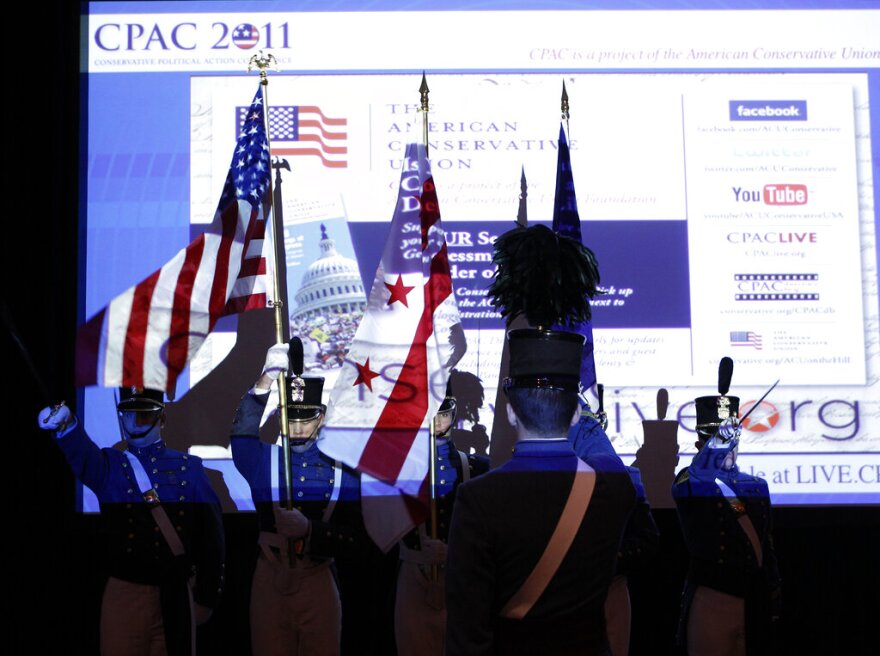The U.S. House passed the $1.9 pandemic relief package largely along party lines early Saturday morning, but not all Western Pennsylvania members showed up for the vote. U.S. Rep. Mike Kelly, who represents Erie and other counties in Northwestern Pennsylvania, opted to attend the Conservative Political Action Conference (CPAC) in Orlando, instead.
Kelly voted by proxy against the bill through U.S. Rep. Fred Keller, a Republican who represents much of central Pennsylvania.
Democratic leadership instituted voting by proxy for public health reasons early on in the pandemic. The goal was to allow members concerned about travel and exposure to the coronavirus to designate another lawmaker as their proxy and cast their vote for them.
But Kelly was among more than a dozen Republicans who have attracted national attention for attending the conference after signing a letter that indicated they were voting by proxy "due to the ongoing public health emergency."
Other House Republicans who attended the conference after voting by proxy included U.S. Rep. Matt Gaetz (R-FL), and U.S. Rep. Darrell Issa (R-CA). Some Democrats, including those who represent Texas and met with President Biden to assess winter storm damage there, also voted by proxy.
In the past, the GOP has criticized the House proxy-voting procedure as a power grab and license to skip out on votes. Last May, area Congressman Guy Reschenthaler issued a statement asserting that "millions of Americans go to work every day to help their communities and defeat the COVID-19 outbreak. They expect their elected officials to do the same." Reschenthaler and Kelly voted with the rest of their party to oppose the procedures at the time.
Kelly's office did not respond to a request for comment about his decision to attend CPAC instead of the vote. In a statement Saturday, he explained his opposition to the relief bill by saying, “Congress’ top priorities must be to get Americans back to work, our kids back to school, more efficient vaccine distribution, and a return to fiscal sanity so we can get our country back on a path to prosperity."
At CPAC, Kelly was a member of a Saturday-morning panel discussion called “Flipping the Switch: Biden’s Energy Policy Goes Dark” where he promoted fracking and Pennsylvania’s natural gas industry.
“Pennsylvania is the Saudi Arabia of natural gas,” he said. “Where I'm from in Pennsylvania, it's incredible the stores of energy we have right below the surface, and it's going to be available to us for centuries - not decades - centuries. Why would we turn away from that type of an asset? ... It just doesn’t make sense.”
Support for the relief bill itself broke down along party lines.
“This bill provides wartime-level funding to help end the COVID-19 pandemic,” said Democrat Conor Lamb in a statement, who voted in person. “The funding in this bill will deliver vaccines quicker, make schools safer, and better support the unemployed. It will help the millions who have lost hours at work due to the pandemic, and will protect people’s jobs, especially those who work for airlines and the public sector.”
The aid package includes funding for schools, testing and vaccine distribution and $1,400 checks, among other things. But Reschenthaler and other Republicans said the aid was not targeted toward those who need it most, and lambasted Democratic efforts to include a $15 an hour minimum wage hike.
“This package has little to do with the ongoing pandemic,” Reschenthaler said in a press release. “President Biden and Congressional Democrats had a chance to make good on their calls for ‘unity.’ They could have worked with Republicans on a targeted bill that sends money where it is truly needed … instead, they are using this pandemic as a pretext to force through a corrupt bill filled with payoffs to their progressive allies.”
Kelly may get another chance to vote on the bill in person. The House’s $15 minimum wage provision, which would more than double the current $7.25 an hour wage, is causing problems in the Senate. Senate Democrats plan to pass the relief bill through budget reconciliation – a procedure that will allow them to push through the legislation with their 51 vote majority instead of the typical 60 votes required. But last week, the Senate parliamentarian said the minimum wage can’t be changed through budget reconciliation, forcing Senate Democrats to strip the provision from the bill and send it back to the House for final approval before it makes its way to President Joe Biden’s desk.




